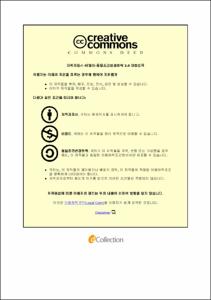自活勤勞事業의 改善方案에 關한 硏究
= (A) study on the developments for the self-supporting programs : focused on Seongbuk-ku, Seoul
- Type
- Thesis
- Alternative Title
- 서울시 城北區를 中心으로
- Advisor
- 李廷鎬
- Department
- 福祉行政學科社會福祉專攻
- Issued Date
- 2002
- Publisher
- 漢城大學校 行政大學院
- Keyword
- 자활근로사업; 근로연계복지; self-supporting programs
- Appears in Collections:
- 지식서비스&컨설팅학과 > 1. Thesis
- Files in This Item:
-
-
Download
 000001675771.pdf
기타 데이터 / 793.4 kB / Adobe PDF
000001675771.pdf
기타 데이터 / 793.4 kB / Adobe PDF
-
Items in Repository are protected by copyright, with all rights reserved, unless otherwise indicated.